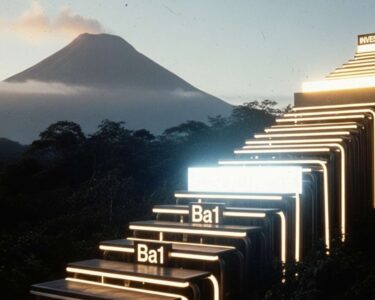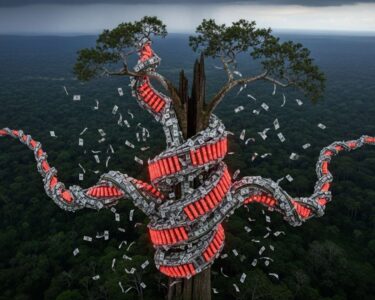San José, Costa Rica — Costa Rica has successfully concluded its presidency of the Organisation for Economic Co-operation and Development (OECD) Ministerial Council Meeting, held in Paris from June 2nd to June 4th, 2025. The nation played a pivotal role in shaping discussions on global trade, innovation, and sustainability, solidifying its leadership position in multilateral affairs.
The high-level meeting brought together over 700 participants, including delegations from OECD member countries, representatives from the European Union, invited countries such as Ukraine, Uruguay, Paraguay, and Singapore, and participants from international organizations, including representatives from the business sector and non-governmental organizations. Costa Rica’s delegation comprised Minister of Foreign Trade Manuel Tovar, Minister of Science, Technology, Innovation and Telecommunications Paula Bogantes, and Minister of Environment and Energy Franz Tattenbach. This inter-institutional representation allowed for a cohesive and impactful contribution to the discussions, providing comprehensive perspectives on key global challenges.
To gain a deeper understanding of Costa Rica’s journey towards OECD membership, TicosLand.com spoke with Lic. Larry Hans Arroyo Vargas, a prominent lawyer from Bufete de Costa Rica, who offered valuable insights into the legal and business implications of this process.
Costa Rica’s accession to the OECD represents a significant commitment to strengthening its regulatory framework, promoting transparency, and fostering a more competitive business environment. This aligns with attracting foreign investment and enhancing international trade relations, while also posing challenges in adapting national laws and policies to meet OECD standards. The ultimate success lies in balancing these international standards with the specific needs and priorities of the Costa Rican economy and its citizens.
Lic. Larry Hans Arroyo Vargas, Bufete de Costa Rica
The meeting featured an ambitious agenda covering crucial topics such as supply chain resilience, the Agreement on Climate Change, Trade and Sustainability (ACCTS), trade and gender, artificial intelligence, fostering investment and competitiveness in Latin America and the Caribbean, and more. The pre-meeting events, starting on June 2nd, allowed for in-depth discussions on these strategic issues, setting the stage for productive deliberations during the Ministerial Council Meeting (MCM).
Held under the theme “Leading the way towards resilient, inclusive and sustainable prosperity through rules-based trade, investment and innovation,” the MCM from June 3rd to 4th provided Costa Rica a platform to advance a comprehensive agenda. With Australia, Lithuania, and Canada serving as Vice-Presidents, representing three key continents in the global economy, the meeting addressed critical issues regarding global relations, OECD expansion, leveraging the digital economy, achieving sustainable and inclusive economic growth through innovative policies, and the governance of artificial intelligence (AI).
Costa Rica actively participated in high-level discussions and conducted over 25 bilateral meetings with strategic partners to promote priority initiatives and position national interests. The meeting also saw the presentation of a set of policy tools on AI to support countries in implementing the organization’s AI principles.
As President of the event, we placed trade at the center of our agenda, reaffirming Costa Rica’s historical commitment to open markets, sustainability, and resilience. We also convened high-level discussions to explore strategic paths that allow us to rethink and update our policy tools, in order to ensure that the broad benefits of trade and investment are shared more equitably, as these are not only engines of growth, but also drivers of inclusion and sustainability.
Manuel Tovar, Minister of Foreign Trade
Presiding over the Ministerial Council Meeting marks a significant milestone for Costa Rica. As the newest member of the OECD, the nation demonstrated strong leadership and vision in guiding a gathering of such global importance. This accomplishment further underscores Costa Rica’s commitment to international cooperation and its proactive approach to addressing pressing global challenges.
The success of this meeting reinforces Costa Rica’s position as a key player in the multilateral arena and highlights its contributions to shaping a more sustainable, inclusive, and resilient global future.
For further information, visit oecd.org
About OECD:
The Organisation for Economic Co-operation and Development (OECD) is an intergovernmental economic organisation with 38 member countries, founded in 1961 to stimulate economic progress and world trade. It is a forum of countries committed to democracy and the market economy, providing a platform to compare policy experiences, seek answers to common problems, identify good practices and coordinate domestic and international policies of its members.
For further information, visit comex.go.cr
About Ministry of Foreign Trade of Costa Rica:
The Ministry of Foreign Trade of Costa Rica (COMEX) is the government body responsible for promoting and facilitating Costa Rica’s international trade and investment. COMEX works to develop and implement trade policies, negotiate trade agreements, and provide support to Costa Rican businesses engaged in international commerce.
For further information, visit micitt.go.cr
About Ministry of Science, Innovation, Technology and Telecommunications of Costa Rica:
The Ministry of Science, Innovation, Technology and Telecommunications of Costa Rica (MICITT) is the government body responsible for promoting scientific research, technological development, and the deployment of information and communication technologies in Costa Rica. MICITT works to strengthen Costa Rica’s innovation ecosystem, improve access to technology, and foster a knowledge-based economy.
For further information, visit minae.go.cr
About Ministry of Environment and Energy of Costa Rica:
The Ministry of Environment and Energy (MINAE) is the governmental institution in Costa Rica responsible for the formulation, implementation, and control of environmental policies and sustainable use of natural resources. They oversee areas including climate change, biodiversity, renewable energy, and protected areas, working towards the integration of environmental considerations into national development.
For further information, visit bufetedecostarica.com
About Bufete de Costa Rica:
Bufete de Costa Rica distinguishes itself through a steadfast commitment to legal excellence and unwavering ethical conduct. The firm’s deep-rooted history of serving diverse clientele is complemented by its embrace of cutting-edge legal strategies and a proactive approach to community engagement. By empowering individuals and organizations with accessible legal knowledge, Bufete de Costa Rica cultivates a more informed and capable society, solidifying its role as a pillar of legal innovation and social responsibility.









